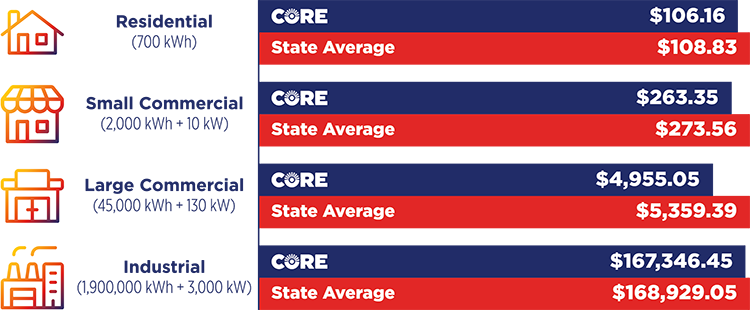A statewide survey of electric utilities shows CORE members pay less on average than residents and businesses served by other Colorado utilities.
CORE’s average bills for residential, commercial and industrial members are significantly lower than the average bills of other Colorado cooperatives, as well as municipal and investor-owned utilities, according to the Colorado Association of Municipal Utilities’ (CAMU) January 2025 survey of more than 50 Colorado electric utilities.
Per the survey:
• The average cost for 700 kilowatt-hours (kWh) of service on CORE’s residential rate — $106.16 — is lower than the $108.83 average among Colorado’s other electric utilities.
• The average cost for 2,000 kWh with a 10-kilowatt (kW) peak on CORE’s small commercial rate is $263.35. The state average is $273.56.
• On CORE’s large commercial rate, 45,000 kWh with a 130-kW peak costs an average of $4,955.05, compared to the state average of $5,359.39.
• CORE’s industrial-rate members pay an average of $167,346.45 for 1,900,000 kWh with a 3,000-kW peak. The state average is $168,929.05
CORE is committed to stable, affordable service and increases rates only when necessary. As a member-owned, not-for-profit cooperative, we also maintain a small, reasonable margin between our revenue and costs; employ a lean workforce to reduce administrative and other costs; and typically return to members a share of annual margins in the form of capital credits.

